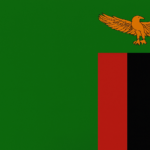
Christianity is a religion founded on the life and teachings of Jesus of Nazareth. With over 2.2 billion adherents, it is the world’s largest religion today. Jesus was born around 7 BC, and it is thought he began teaching in Galilee after his 30th year. The major denominations or sects of Christianity include Roman Catholicism, Eastern Orthodoxy, and Protestantism. Most Christians believe that Jesus was crucified on the cross, buried, and resurrected, granting eternal life to those who believe in him, and that he died to atone for their sins.
Christianity Facts:
Jesus is also known as the Messiah or the Christ.
Most Christians believe that Jesus is the Son of God, and that his arrival was predicted in the Bible’s Old Testament.
The New Testament of the Bible contains accounts of Jesus’ teachings and life.
Christians believe that Jesus will return to earth one day in the Second Coming of Christ to judge humanity for its sins and to grant eternal life to those who believe in and follow his teachings.
The term gospel refers to the written accounts of Jesus’ life in Christianity.
The Ten Commandments are Christian biblical principles. Despite the fact that different denominations have different interpretations, they share many similarities. Murder, theft, adultery, blasphemy, and worshiping idols other than God are all prohibited by most interpretations. Keeping the Sabbath is also widely practiced.
The Roman Catholic Church is the world’s largest Christian denomination today. Roman Catholics account for roughly half of all Christians worldwide.
Today, there are approximately 800 million Protestant Christians in the world.
Orthodox Christians account for approximately 160 million of the world’s Christians.
There are approximately 6 million Christian books in print today.
Every year, approximately 78.5 million Bibles are distributed around the world.
Priests, bishops, archbishops, patriarchs, pastors, ministers, preachers, and deacons are examples of Christian religious professionals.
Churches, chapels, cathedrals, basilicas, and meeting halls are examples of Christian places of worship.
Many Christians believe in angels, devils, demons, the Holy Spirit, Salvation, Mary, the Mother of Jesus, Purgatory, heaven, and hell.
Christians believe in one God, who is essentially a trinity consisting of the Holy Spirit, the Father, and the Son.
Christians believe that the afterlife includes an eternal heaven or hell, depending on whether the individual believes in God, Christ’s resurrection, and how they lived their lives and worshiped God.
Advent, Christmas, Epiphany, Lent, Good Friday, Easter, and All Saint’s Day are all Christian holidays.
According to Christianity, there are seven deadly sins: pride, greed, lust, envy, gluttony, anger, and sloth.
Baptism in the Christian faith can mean different things to different people. Some believe that baptism makes the person being baptized a member of the church, while others believe it is related to salvation or can strengthen a person’s faith.
Although Christianity is the world’s largest religion and is practiced in many countries, it is primarily practiced in North America, South America, and Europe.
Other prominent Christian figures besides Jesus Christ include Jesus’ mother Mary, Abraham, the Apostle Paul, and John the Baptist.
Christianity is a vast and diverse religion with a rich history and complex theology. Here are some important facts about Christianity:
Core Beliefs:
- Monotheism: Christians believe in one God who is the creator and sustainer of the universe.
- Trinity: God is understood as a Trinity: Father, Son (Jesus Christ), and Holy Spirit, three persons in one God.
- Jesus Christ: Christians believe Jesus is the Son of God, who was born of the Virgin Mary, lived a sinless life, died on the cross to atone for humanity’s sins, and rose from the dead.
- Salvation: Through faith in Jesus Christ, Christians believe they can receive forgiveness of sins and eternal life.
- Bible: The Bible is the holy book of Christianity, consisting of the Old Testament (shared with Judaism) and the New Testament, which focuses on the life and teachings of Jesus.
History and Development:
- Origins: Christianity originated in the first century AD in Judea (present-day Israel) with the followers of Jesus Christ.
- Spread: Christianity spread throughout the Roman Empire and beyond, becoming the dominant religion in Europe.
- Denominations: Over time, Christianity has branched into various denominations, including Roman Catholicism, Eastern Orthodoxy, and Protestantism, each with its own traditions and interpretations of scripture.
Practices and Traditions:
- Worship: Christians worship in churches and other places of gathering. Worship services often include prayer, Bible reading, singing, and sermons.
- Sacraments: Many Christian denominations observe sacraments, such as baptism and communion, which are outward signs of inward grace.
- Holidays: Important Christian holidays include Christmas (celebrating the birth of Jesus) and Easter (celebrating the resurrection of Jesus).
Important Figures:
- Jesus Christ: The central figure of Christianity, believed to be the Son of God and the Messiah.
- Apostles: The followers of Jesus who spread his teachings after his death, such as Peter and Paul.
- Mary: The mother of Jesus, revered by many Christians.
Influence:
- Culture: Christianity has had a profound influence on Western culture, art, philosophy, and ethics.
- Global Religion: Christianity is the largest religion in the world, with over 2 billion followers across the globe.
Diversity:
- Varied Interpretations: There is a wide range of beliefs and practices within Christianity, reflecting the diversity of denominations and individual interpretations of scripture.
- Cultural Expressions: Christianity is expressed in diverse ways across different cultures, with unique traditions and forms of worship.
This is just a brief overview of some important facts about Christianity. There is much more to learn about this complex and multifaceted religion.









